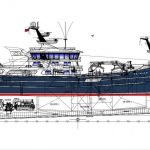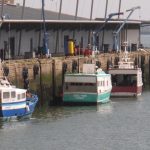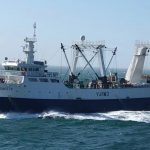European Commissioner for Maritime Affairs and Fisheries Joe Borg commented: “This is very good news for honest fishermen everywhere and very bad news for all those who continue to plunder the sea by taking advantage of lax control measures and weak sanctions to conceal their illegal activities. By strengthening the power to act of all states which provide port facilities to foreign vessels, the international community has closed a major loophole. Ports of convenience cannot be tolerated. The European Union has already taken similar steps to strengthen control in its own ports, and we have pushed to have them adopted by Regional Fisheries Management Organisations. I am delighted that this approach we have been actively promoting will now become the international norm.”
The new FAO Agreement will apply globally to the ports of all States and entities around the world, setting minimum standards for port State measures, including in particular: establishment of a list of designated ports, prior notification by the flag state to confirm the legality of the catches held onboard before a vessel is granted access to port facilities, procedures for inspection of foreign vessels when at port, and for follow-up of any infringements detected, a legal basis for denying IUU-listed vessels access to port facilities, and provisions for the enhanced exchange of information between countries.
Many developing countries took part in this week’s negotiations which opened Monday, and the text of the Agreement includes commitments to provide the developing states with assistance to help them implement these measures. The Agreement is notable for its broad scope, which covers not only fishing vessels per se, but also transport vessels which may be used to carry fisheries products. It also endorses a broad definition of IUU fishing, so as to include a wide range of unregulated fishing operations.
Background
The EU has long advocated the need for a strong and binding agreement at international level on port state control, based on the requirement for prior notification by the flag state to the port state to certify that the fish a vessel is carrying have been caught legally, under licence and within quota, before that vessel can be granted access to the port and its facilities. It is this stronger requirement which forms the basis for the Port State control schemes recently adopted by a number of Regional Fisheries Management Organisations (RFMOs) (including NEAFC, ICCAT, and NAFO), – on a proposal from the EU – as well as for the port state measures contained in the EU’s own IUU Regulation which will enter into force on 1 st January 2009.
The Commission is pleased that, by adopting the new FAO Agreement, the international community has endorsed the tough approach to fighting IUU fishing which the EU has been promoting.
Today’s agreement represents a significant step forward from the Model Scheme on Port State Measures to Combat IUU Fishing endorsed by the FAO Committee on Fisheries in 2005. The Model Scheme was the first serious move to establish international minimum standards for port state control, but it remained a series of recommendations, not a binding legal instrument, and many of its provisions were weaker than those contained in the Agreement reached today in Rome.








